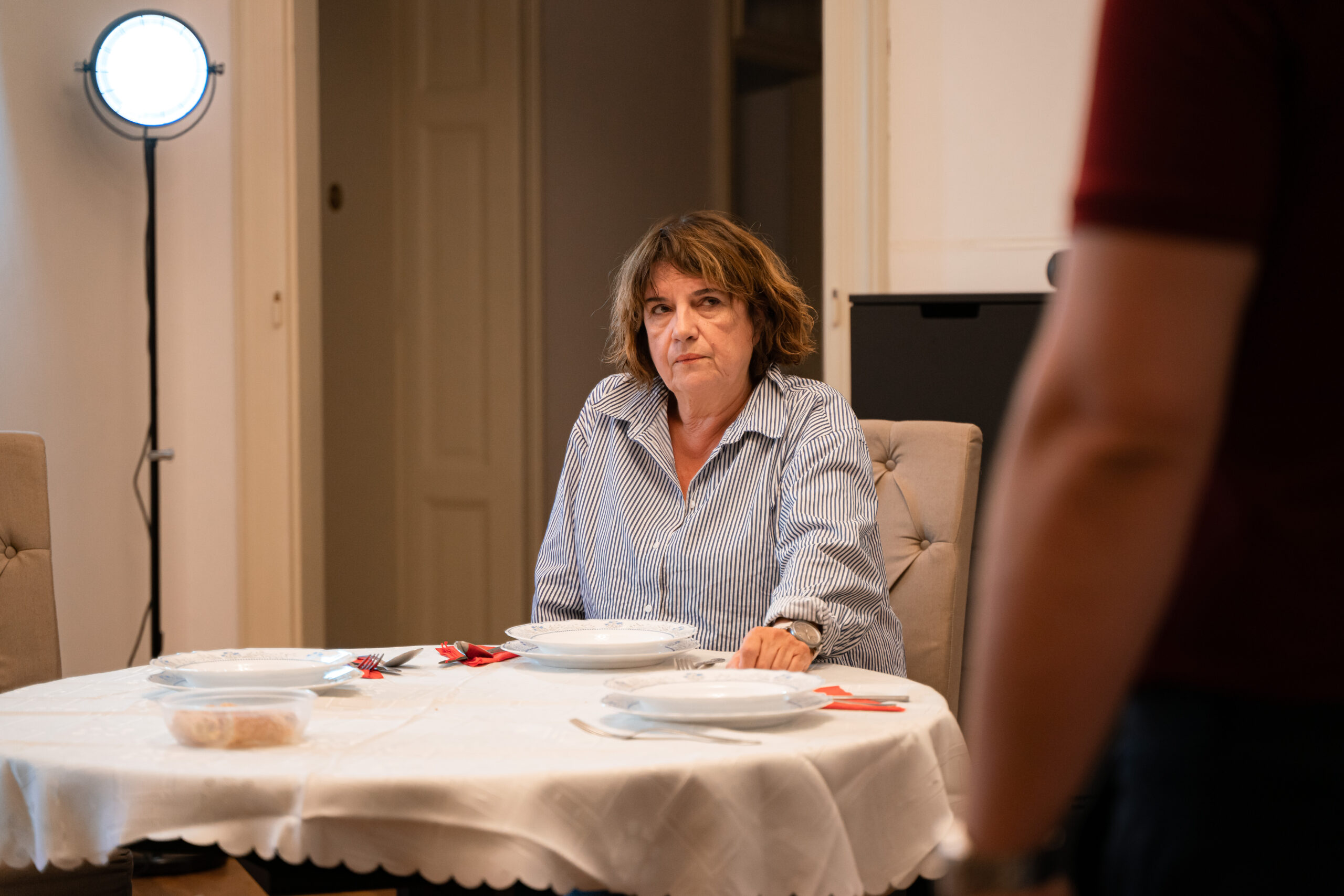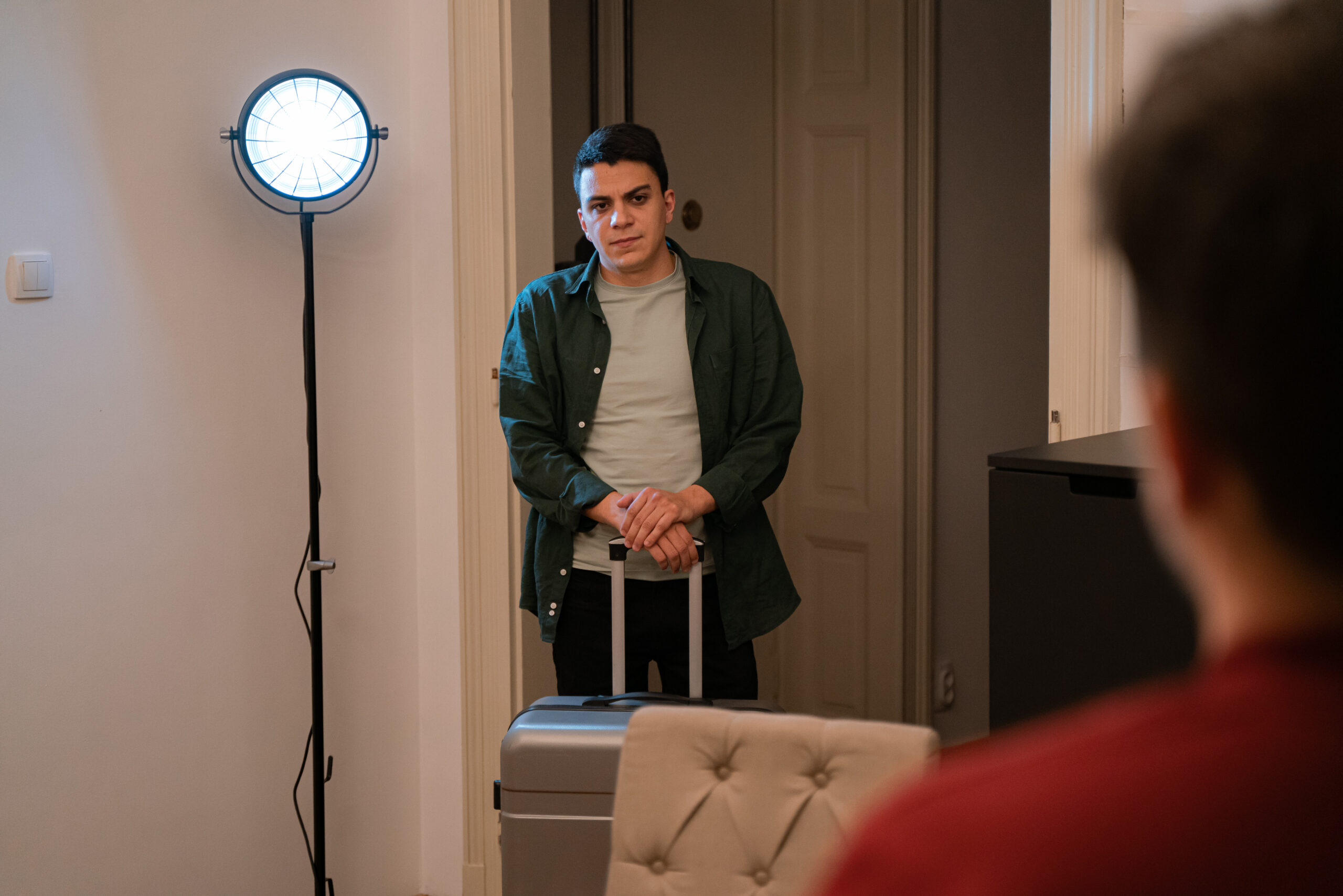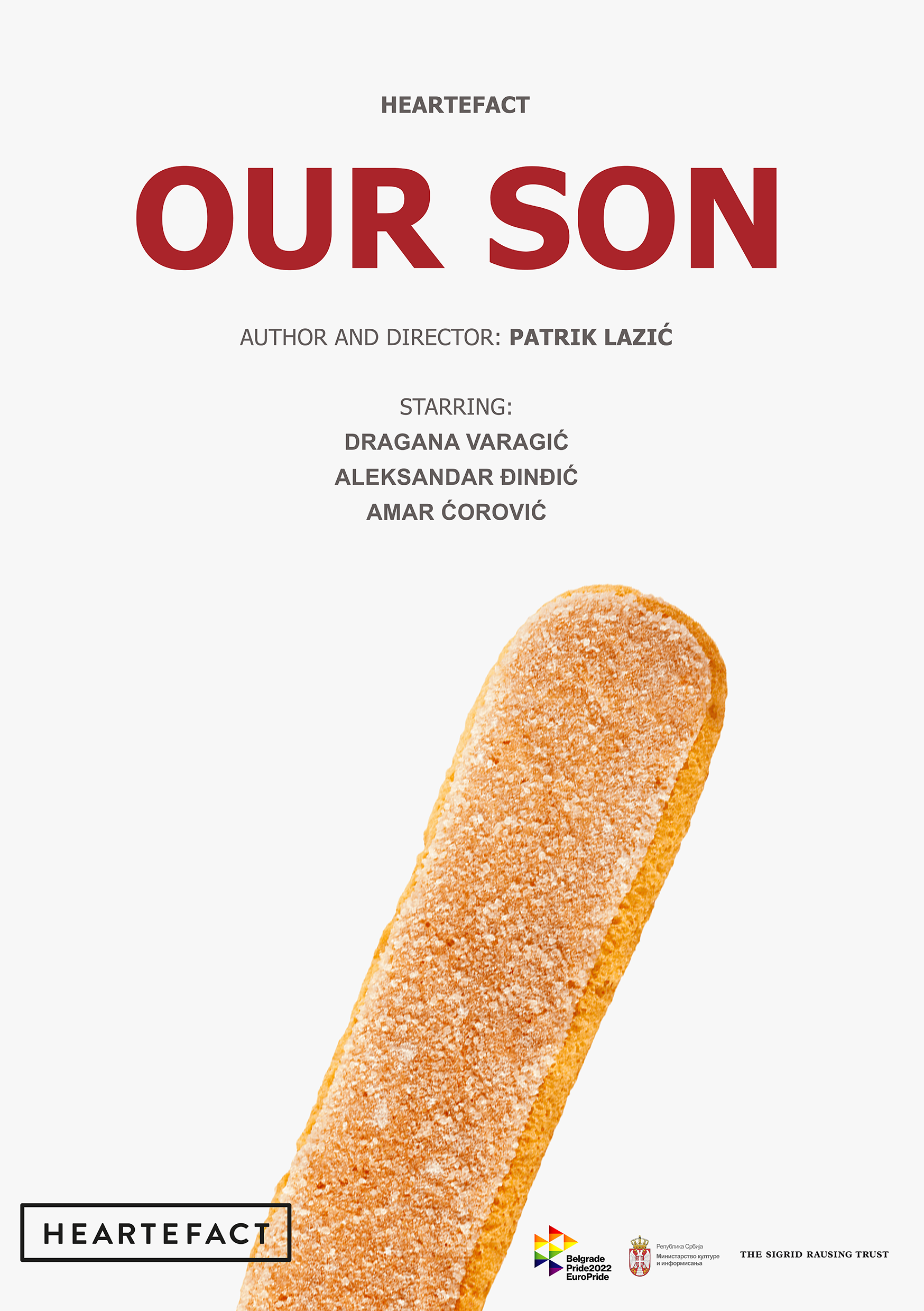Author and director: Patrik Lazić
Starring: Dragana Varagić, Aleksandar Đinđić, Amar Ćorović
Producer: Aleksandra Lozanović
Photography: Milena Arsenić
Design: Miroslav Živanov
Premiere: 11th June 2022 at the Heartefact House (season 2021/2022)
It is about questioning the limits of acceptance and rejection. After a young man comes out to his parents, they try to live with the knowledge that their son is different. The rituals of the family lunch become a big dramatic twist. In this intimate and exploratory space for the young director and the author’s team, the theatrical framework is also overcome.
“The story begins like hundreds of other stories: a mother, a father and a son. For years, maybe forever, no one in that family knew how to say an honest word to anyone. Now the son has grown up, gone to live as far away as possible, and sometimes he visits them – after all he loves them and he needs them, and this time he hopes that honest words will come. Parents also love their son, and they would love him even more, if only they knew what the mistake was, what the reason was and who was to blame for the fact that their child is not “like the rest of the normal world”. Everything would be fine, but the only problem is that the son is already the same as the normal world. An intimate, honest, poetic, humorous, and at times tragic story about parents who deep down can’t find a way to accept the identity of their gay son, even though they think they have tried everything, they remain prisoners of conditional love, which is the only thing they are ready for. This project of Patrik Lazić’s, one of the most gifted directors of the younger generation, represents a serious artistic step forward – in a text that arises from reality, and where scenes from all our lives come together. The story begins like hundreds of other stories because that’s what it is and we are all a part of it.”
Biljana Srbljanović
“I consider my project “Our Son” to be an attempt to understand my sexuality. Playing with autobiographical elements and those of my family – on the edge of truth and fiction, I apply available psychological and “parapsychological theories” in an attempt to understand the sexual identity I live with today. Through an abundance of laughter, irony and jokes at our own expense, we provide viewers with an intimate theatrical experience in a non-traditional stage space, where they witness a fictitious meeting of mother, father and son. This is where accounts are settled and (un)healed wounds, (un)satisfied needs and fears are questioned. Why should you watch this? Maybe in my silences you can find all that is unspoken in your families, maybe in my dilemmas you can recognize your own red lines, and maybe in my honesty, you can question your own readiness for the new time that has already come.”
Patrik Lazić
Criticism
“Audiences are finding sharp resonance and emotional comfort in Patrik Lazić’s moving and funny play Our Son, about topics still sensitive in the Balkans.” – Natasha Tripney, The Guardian
“Artistically potent, exciting, strong… Thanks to the praiseworthy directorial process, times are fused together – the then and the now. The theme is homosexuality, but it is the artistic and theatrical fullness of the play that reaches out further and more comprehensively.” – Tanja Nježić, Blic
“Our Son is an interesting scenic exploration of how tolerance and intolerance are not simple and one-sided. The same person can be tolerant on one issue, but ultimately intolerant on another.” – Marina Milivojević Mađarev, Vreme
“Along with this theme, dramatically even more strongly than it is, the parental relationship, the personalities of the mother and father, are explored and the scenes that we could call scenes from married life, which Lazić very skilfully, both as a director and a dramaturgist, turns into several highly emotional peaks.” – Aleksandra Glovacki, Nova.rs
“To some festival guests from a Western European metropolis, the discourse may have seemed somewhat outdated. But anyone who remembered that the Europride march through Belgrade this autumn was first canceled by the government due to alleged security concerns and was only permitted on a much smaller scale recognized the burning topicality of the issue.” – Tom Mustroph, taz.de
Awards
Zaplet 14 International Actor’s Festival – Banja Luka, October 2022.
“The award for the best actress is given to Dragana Varagić by the jury for her fascinating acting maturity in portraying a strong and sensitive mother“
Young Directors Festival Fast Forward, Dresden, November 2023 – Young Jury Award for the Best Play at the Festival
27th Art Trema Fest – Ruma, March 2024. Festival’s expert jury: Award for Best Leading Female Role to Dragana Varagić, Special Award for Dramatic Text to Patrick Lazić, Bronze Trema Mask for Best Play; The festival’s jury of active citizens in culture: Award for Best Male Role to Amar Ćorović, Second Award for Best Play.
Festivals/Guest performances
International Actor’s Festival Zaplet 14 – Banja Luka, October 2022
Kosovo Theater Showcase – Prishtina, October 2022
Synergy International Festival – Novi Sad, December 2022
International Dublin Gay Theater Festival – Dublin, May 2023
Euroregional Theater Festival TESZT – Timisoara, May 2023
Days of Satire in Kerempuh – Zagreb, June 2023
Drama Queer Festival – Bratislava, October 2023
Fast Forward Festival – Dresden, November 2023
Art Trema Fest – Ruma, March 2024
Festival of LGBTI+ art and activism “Kvirhana” – Sarajevo, June 2024
12. Asphalt Festival – Dusseldorf, July 2024
Heartefact’s queer caravan – Lazarevac, Barajevo, Čukarica, Pirot, Niš, Arilje, Užice (October 2023-June 2024)
FOG Festival, Triennale Milano – Milan, March 2025








